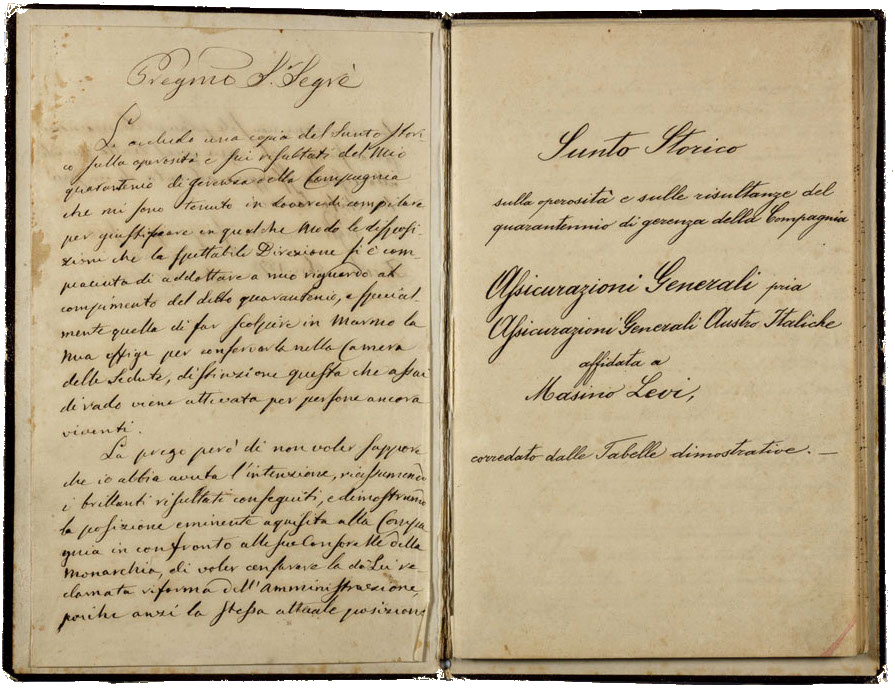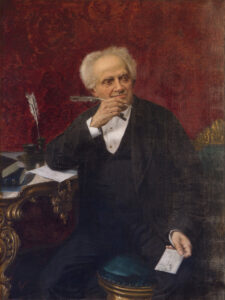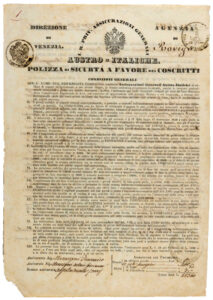Masino Levi’s Sunto Storico: Forty Years of Work in One “Tweet”
02 November 2018
There is no shortage of valuable first-hand accounts in Generali’s Historical Archive, written by the people who made the company what it is today. These provide a vigorous cross-section of corporate life, and stand as a testament to their dedication and passion to the company’s development. But above all, they demonstrate a synergy formed over time between the company and its employees, until personal stories and company matters intertwined and merged to become one and the same.
Here is one example, from a 51-page diary written in 19th century hand-written cursive, dated October 1878: Sunto storico sulle operosità e sulle risultanze del quarantennio di gerenza della Compagnia Assicurazioni Generali pria Assicurazioni Generali Austro Italiche affidato a Masino Levi, corredato dalle Tabelle dimostrative [Historical summary of the industriousness and development of the Compagnia Assicurazioni Generali, previously Assicurazioni Generali Austro-Italiche, in forty years of management, by Masino Levi, with tables for demonstration]. The title summarises in a few words (what we would today call a tweet) a whole life, a whole career. The author, Masino Levi, appears to narrate not with his words, but with facts, or more specifically with numbers. He recounts the history of Generali, which is also his own – after forty years spent as the company’s Secretary General, from 1837 to 1877.
He begins with a brief recap of his own career, which evolves into tangible steps taken by the company as the narrative unfolds. These actions, intended to lay the groundwork for a better future, replace the “I, Masino Levi” with “I, the company”. Specifically, he helps to boost reserves with a growth in capital, by endorsing new products such as insurance for military conscription, hail damage, trade receivables and mortgage loans, and by focusing on sectors which were already experiencing significant growth, such as life insurance and by introducing the tontine system. There was no shortage of social benefits for employees, such as the institution of the pension fund.
The consistent progress that followed is summarised in tables, where beneficial, dividends and damages paid are reported annually and compared with those of Riunione Adriatica di Sicurtà (RAS), whose successes were gathered in a historical-technical booklet, which provided the inspiration for this mini-volume.
In the end, the Sunto appears to validate the view that Assicurazioni Generali had no need of representatives, much less for supervisors above them, so much as they did for well-prepared technical staff who would know how to respond to market demand with suitable products, and how to handle the competition from rival insurance agencies: the readers are invited to compare the numbers he provided to find out by themselves that it is history that proves him right.
For more information, see S. STENER, The Sunto Storico by Masino Levi. A Moment of Reflection after Forty Years in the Front Line, in Generali in History. Tales from the Archive. Nineteenth Century, Venice, Marsilio, 2016, p. 228-231.


